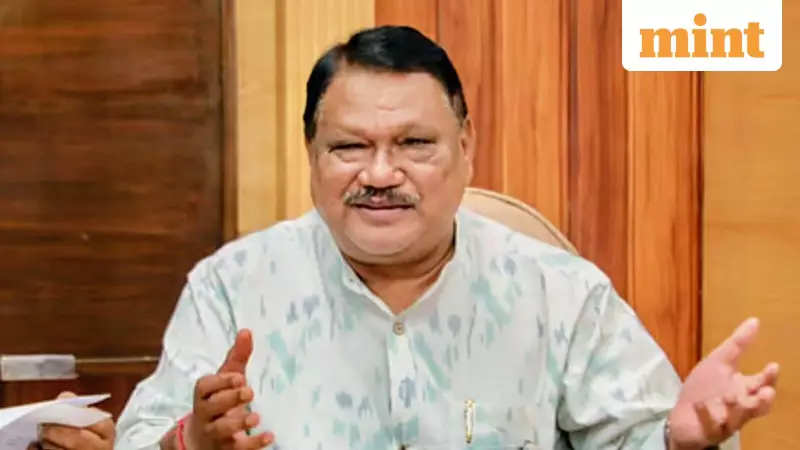
India's tribal communities are undergoing a remarkable transformation, moving from being perceived primarily as welfare beneficiaries to emerging as dynamic entrepreneurs, innovators, and market leaders, according to Union Minister of Tribal Affairs Jual Oram. In an exclusive email interview with LiveMint, Minister Oram detailed the government's innovative approach that blends compassion with commerce to achieve sustainable growth and dignity in tribal regions nationwide.
From Welfare to Market-Driven Empowerment
The government is systematically transitioning tribal entrepreneurship support from a welfare-driven model to an enterprise-led, market-focused approach. Our vision is to empower tribal communities not merely as beneficiaries but as leaders shaping India's economic future, emphasized Minister Oram, who has been serving in Prime Minister Narendra Modi's cabinet since 2024.
Through strategic collaborations with industries, investors, and mentors, tribal entrepreneurs are gaining unprecedented access to modern markets, financial resources, and technological advancements. Initiatives like the Tribal Business Conclave 2025 are creating direct engagement channels between tribal producers and corporate entities, unlocking significant opportunities for corporate social responsibility (CSR) initiatives, procurement agreements, and investment flows across the country.
The results speak volumes: over 12 lakh tribal entrepreneurs have been empowered through 4,030 Van Dhan Vikas Kendras, while tribal products worth more than ₹3,000 crore have been successfully marketed under the Tribes India brand. These success stories are being showcased nationwide to inspire further innovation and scaling, with the clear objective of making tribal enterprise a vital force in achieving the Viksit Bharat 2047 vision.
Historic Investments in Tribal Development
The government's commitment to tribal development extends beyond entrepreneurship, reflected in the substantial allocation of ₹79,000 crore dedicated to providing housing, roads, healthcare facilities, and clean water to tribal areas across India. Minister Oram emphasized that this financial commitment represents more than just numbers—it symbolizes a heartfelt promise to bring development and dignity to every tribal household.
Unlike previous approaches where progress often stalled at the paperwork stage, the current government focuses on delivering visible, tangible transformation on the ground. Under the PM-JANMAN initiative, which has an impressive outlay of ₹24,104 crore specifically for 75 Particularly Vulnerable Tribal Groups (PVTGs), the government has achieved remarkable milestones:
- Over 4.34 lakh pucca houses sanctioned with 1.04 lakh+ already completed
- 7,200 villages achieving full Har Ghar Jal water saturation
- 687 Mobile Medical Units delivering healthcare to more than 38 lakh beneficiaries
Similarly, the Dharti Aaba Janjatiya Gram Utkarsh Abhiyan (DAJGUA) has facilitated the sanction of over 11.45 lakh houses and provided safe drinking water to 62,515 villages. This comprehensive approach ensures that every tribal family enjoys access to basic amenities and the same quality of life as any citizen in urban India.
Practical Support for Tribal Entrepreneurs
Recognizing the unique challenges tribal entrepreneurs face in accessing credit, technology, and market opportunities, the government has designed practical policy solutions that create real pathways rather than bureaucratic hurdles.
Through TRIFED, the Tech for Tribals initiative, and collaborations with banking institutions and industry bodies, tribal entrepreneurs are receiving enhanced access to credit, comprehensive business training, and digital marketing capacity development. Thousands of tribal entrepreneurs have already been trained in financial literacy, business planning, and product packaging through these programs.
Platforms like the Tribal Business Conclave directly connect entrepreneurs with investors and technology partners, enabling them to present their products and ideas on a national stage. This supportive ecosystem is helping tribal businesses grow sustainably while creating employment opportunities and fostering pride within their communities.
Bridging Traditional Knowledge with Modern Markets
Initiatives such as Roots to Rise pitching sessions and Buyer-Seller Meets are proving transformative for tribal producers. For the first time, tribal startups and enterprises are pitching their ideas directly to investors, government officials, and corporate leaders as equal partners rather than peripheral participants.
These interactive sessions foster mentorship relationships, provide access to funding opportunities, and establish long-term business linkages. The Buyer-Seller Meets specifically enable producers of handicrafts, forest produce, and organic goods to connect with bulk buyers who genuinely value authenticity and sustainability.
Through these innovative platforms, the government is building crucial bridges between traditional knowledge systems and modern market demands, ensuring fair prices, steady incomes, and well-deserved recognition for the exceptional creativity and craftsmanship of India's tribal communities. This strategic approach is effectively transforming local potential into national opportunity.
When questioned about political matters, including Priyanka Gandhi Vadra's request to include the Kalanadi community in the Scheduled Tribes list and assessment of NDA's performance in Bihar elections, Minister Oram maintained that his focus remains firmly on policy implementation and welfare initiatives for tribal communities. He emphasized following established constitutional procedures for inclusion requests and respecting the democratic process for political assessments.
Regarding his personal decision not to contest future elections, Minister Oram reaffirmed his unwavering commitment to tribal welfare, stating he would continue serving tribal communities in every possible capacity, whether within or outside electoral politics.






